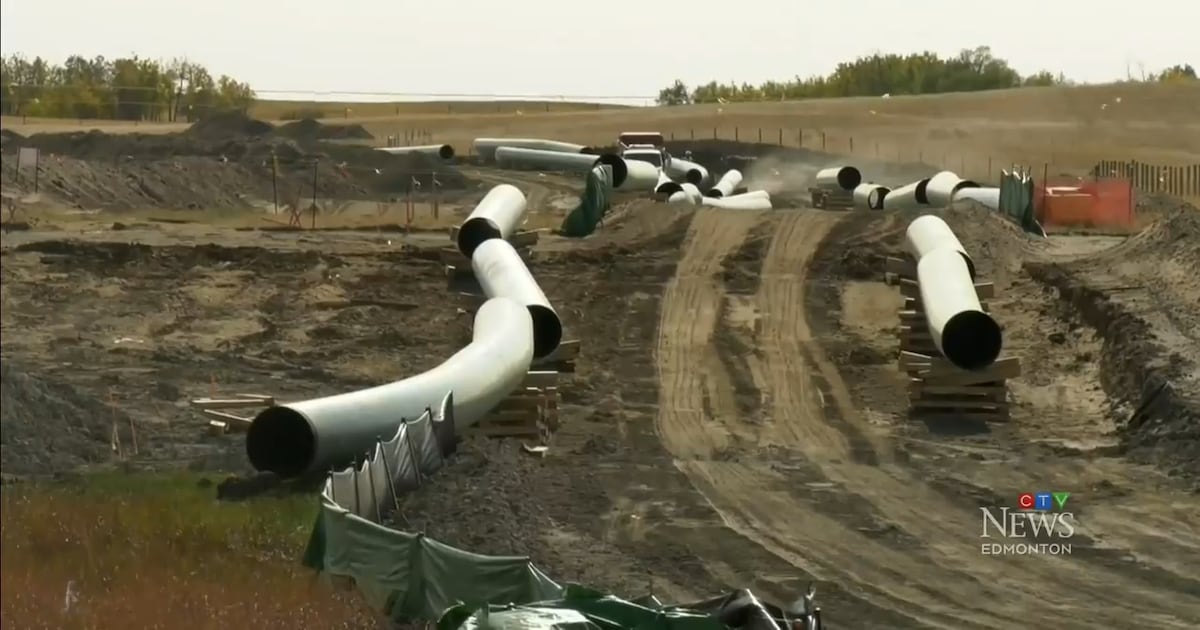Now defunct after being shut down twice, the Keystone XL pipeline is back in the spotlight after CTV News learned Prime Minister Mark Carney and U.S. President Donald Trump discussed the project during their meeting in Washington earlier this week.
The expansion project began more than a decade ago. An extension of the existing Keystone pipeline, Keystone XL was designed to move more of Alberta’s crude oil to refineries on the U.S. Gulf Coast.
But the Keystone XL pipeline never made it online. It was met with criticism from environmental advocates — first shut down by the Obama administration in 2015. Trump revived it with a new presidential permit in 2017 during his first term, only for Joe Biden to revoke that permit on his first day in office in 2021, halting the project again.
“Third time could definitely be the charm,” said CTV News political commentator Scott Reid.“And charming not just for friends of the oil patch, but also for Canada-U.S. relations, possibly.”
According to sources who spoke with CTV News, the pipeline expansion was raised in the context of seeking relief from U.S. tariffs on Canadian steel and aluminum during Carney’s meeting with Trump on Tuesday.
Industry skeptical, but open to Keystone XL talks
“If we can use it to our advantage in a discussion with the U.S., I think that’s a good thing,” said Richard Masson, executive fellow at the University of Calgary’s School of Public Policy and former CEO of the Alberta Petroleum Marketing Commission.“But I see a lot of steep barriers to getting it actually built.”
The biggest barrier is financial risk, said Masson, who believes explicit financial guarantees from Washington would be required.
When the project was cancelled in 2021, the Alberta government and TC Energy (then TransCanada Corporation), which was operating the project, lost billions of dollars.
“It’ll be unlikely to be completed before this presidential term ends,” Masson said. “So it could be a Democrat in the White House next time around to cancel it for a third time, and if you can imagine how that would look, it just blows my mind.”
Strong business case, say experts
Industry experts say growing demand is a clear reason the project still makes economic sense.
“Canada has the potential to increase its existing oil sands production, perhaps by as much as a million barrels a day,” said former TC Energy executive Dennis McConaghy, who worked on the original Keystone XL proposal.
But McConaghy warned the economic boost would require “fundamental adjustments by the Carney government with respect to existing Canadian climate and carbon policy.”
The prime minister has signalled that environmental targets and requirements remain central to any new project of national interest, but on Friday he wouldn’t commit to maintaining the emissions cap.
Still, experts suggest meeting those requirements could be a barrier.
“Is there a way that the province of Alberta, the industry, can provide the prime minister and his team with certainty that (the project) is not going to compromise the likelihood of meeting our climate change targets? said Andrew Leach, co-director of the Institute of Public Economics at the University of Alberta. “That’s going to be a really tough ask.”
The revival of the Keystone XL expansion could also face backlash for increasing Canada’s reliance on the U.S., at a time when Ottawa says it’s looking to diversify its markets.
